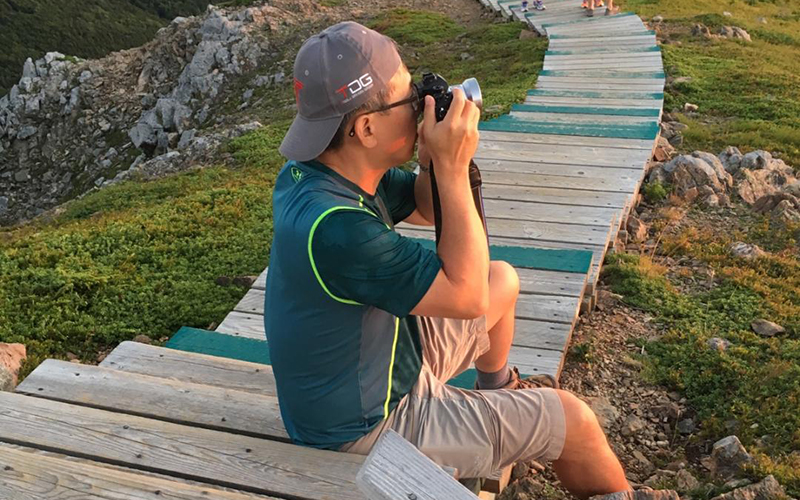Meet Heung Bae Kim, MD, director of the Pediatric Transplant Center and surgical director of the Kidney, Liver, and Intestine and Multivisceral Transplant Programs.
How did you decide to become a transplant surgeon?
During the first day of my surgery rotation at Albert Einstein College of Medicine, I decided I wanted to be a surgeon. I didn’t know what kind of surgery, but I was interested in pediatrics. So, I applied to residencies with the intent of doing pediatric surgery, and I was fortunate enough to get a fellowship spot at Boston Children’s Hospital.
When I arrived here in 2000, my plan was to be a pediatric surgeon, but when I was finishing up my fellowship, an opportunity arose to continue my training in transplant. The Department of Surgery was looking for a full-time doctor to perform liver transplants. It was an area that had always interested me, so I decided to take Dr. Shamberger’s (the interim Chief at the time) offer to join Boston Children’s and pursue an additional two years of training.
How did you become director of the Pediatric Transplant Center?
When I graduated from my transplant fellowship program in 2004, I came on board Boston Children’s staff fulltime. There was no Pediatric Transplant Center at the time, so first, I became surgical director of the Kidney and Liver TransplantPrograms. Then we started the Multivisceral and Intestinal Program, and I became surgical director of that.
The Pediatric Transplant Center officially formed in 2006. I was asked to become the interim director, and then they made it a permanent position a year or two later.
Before that, the individual organ programs existed, but there was no cohesiveness between the groups. The concept of a unified transplant center was new. There weren’t models to look at. There were many hospitals that had strong liver programs for instance, but they were one-organ programs. So, we were starting from scratch. In the old days, if there was a transplant-related issue, people didn’t know who to call. Now it’s obvious who to call, and they know who all the players are.
What do you enjoy most about your job?
I like working with the families and taking care of the kids. It’s very rewarding. With children, we are always shooting for the 70-year cure, not the 10-year cure that you shoot for when you are taking care of older adults.
To achieve a 70-year cure is a lot different. We have to think differently. I like innovating to improve things; there is always room for improvement.
Having been able to create the Center, to create what I think is a good working environment, with a good group of people in an ecosystem, where transplant is a part of our everyday is really rewarding. When I was a fellow, the first time I called to schedule a transplant, the person who answered the phone in the operating room said, “Oh, we do those here?” And now, it’s totally different. Four transplants in one day? No problem.
What are your interests and hobbies outside of work?
I am into photography. Every vacation, I always lug my camera equipment around. I play squash to stay in shape. I enjoy spending time with my wife and two kids — one is in college and one is in high school, so we’ve launched one.

When you were little, what did you want to be when you grew up?
I was a very non-goal oriented child, a troublemaker. I grew up in Philadelphia. I always got good grades, but I wasn’t a model student. Not that I was a total delinquent, but I was a partial delinquent.
I finally got serious in medical school. I got lucky in my life to end up where I ended up. My wife is the total opposite. We often joke that we met at the right time, because if she met me earlier, she wouldn’t have liked me at all.
What would you be if you weren’t a transplant surgeon?
I like to create and build things, so probably an engineer. I was always taking things apart and putting them back together as a kid — that’s transplant surgery.
Do you ever wish you had pursued another path?
No, this is it. This is it.
